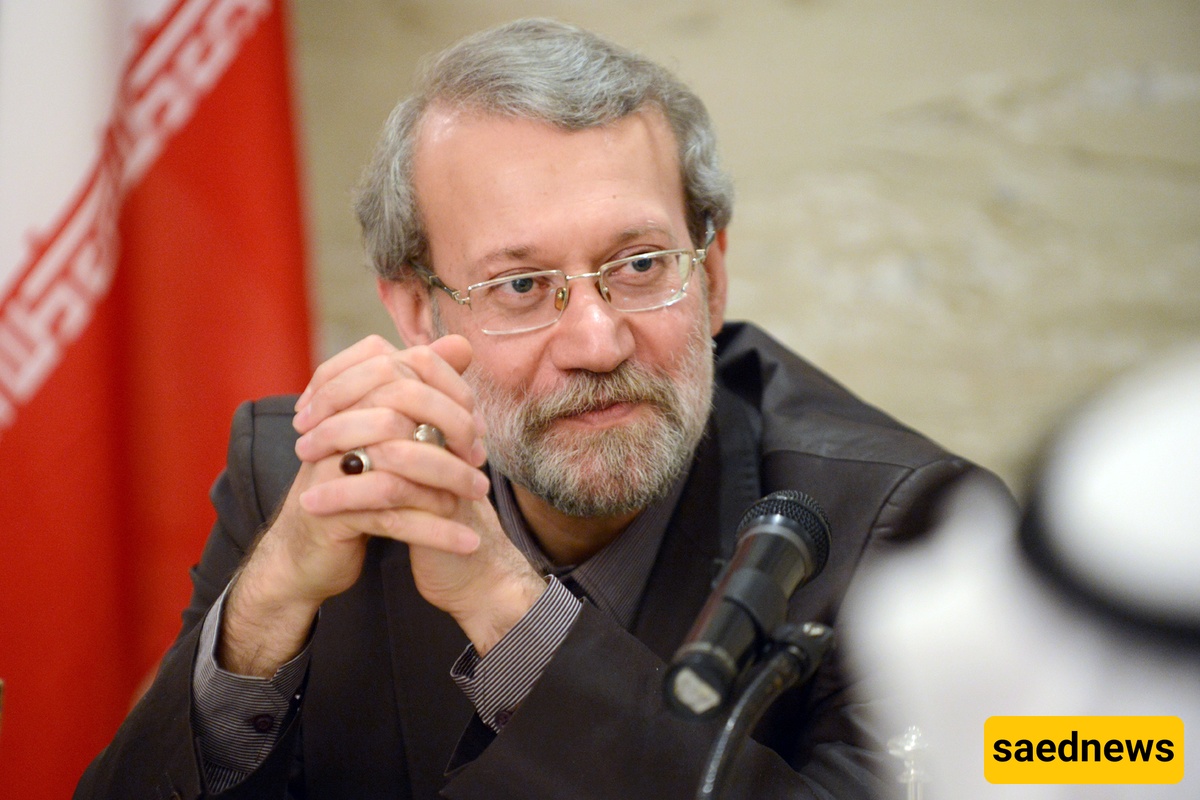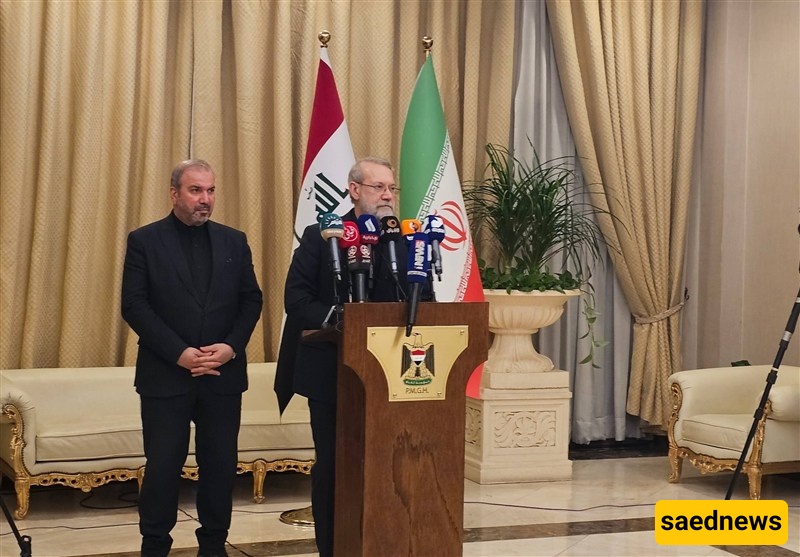SAEDNEWS: Ali Larijani, Iran’s former parliament speaker and current senior security figure, outlined Tehran’s regional security doctrine, stressing cooperation over confrontation. In his remarks, he revealed details of a new security agreement with Iraq and highlighted how recent conflicts underscored Iran’s resilience and national solidarity.

According to Saed News qouted from ISNA, Ali Larijani, in an interview about his first trip to Iraq as Secretary of the Supreme National Security Council and the objectives of that visit, said:
“There is no doubt that regional issues have always been central to Iran’s national interests and security. In fact, the Islamic Republic’s national security strategy is rooted in regional considerations.”

Larijani added:
“In national security, two main approaches exist. The first is the theory embraced by the United States and Israel, which openly declare that peace must come through power. In practice, this means either surrender or war — a doctrine that destabilizes the region, as we have witnessed in Syria.
The second theory is the pursuit of sustainable security through the participation of regional states, in which all countries are empowered. This is the path Iran is committed to. Through this approach, the behavior of the Islamic Republic gains a different meaning: rather than creating chaos, we seek stability. An example of this is the security agreement we signed with Iraq during this trip, aimed at establishing a stable security environment together.”
No room for third-party disruption
The representative of the Supreme Leader in the Supreme National Security Council emphasized:
“The central point of the Iran–Iraq security agreement is mutual commitment not to allow individuals, groups, or third countries to disrupt the security and cohesion of the two nations. Neither side should allow its territory to be used against the other, nor permit external states to infiltrate their security structures.”
When asked on the program Tehran, Tel Aviv whether the agreement addressed the use of neighboring countries’ airspace by the U.S. and Israel in their 12-day war against Iran, Larijani replied:
“The basis of this matter is included in the agreement. Of course, countries sometimes face limitations in preventing such infiltrations, but they must work to resolve these shortcomings.”
The enemy’s plan: to pit Iran and Iraq against each other
Discussing the current security atmosphere in the region compared to two decades ago, Larijani explained:
“The recent events — particularly the war launched by Israel and the U.S. against us — must be seen as part of a chain of hostile actions. Their behavior has always been to create disorder in the region. Hillary Clinton, the former U.S. Secretary of State, even admitted that Washington created Daesh (ISIS). Why? To weaken both Iran and Iraq and inflame sectarian divides, especially among Iraqi tribes where Shia and Sunni communities have long coexisted. Regional states also played a role in fueling such divisions.
But this time, the confrontation was different. Unlike before, when Americans hid behind proxies, this time they came forward directly. Their defense secretary openly ordered airstrikes, and the Pentagon admitted it had planned the assault for ten years.”
National solidarity: a unique cultural and political asset
Larijani continued:
“Yet, with divine help, every time such crises emerged — whether sectarian strife or the latest war — a sense of clarity and awareness among wise individuals revealed who was really behind the conflicts. In the recent events, we witnessed an extraordinary phenomenon: national solidarity in Iran. It was far from a simple occurrence.
What was striking was that even some Iranians who had previously joined anti-government protests told me, when they recognized me on a hiking trail, that although they opposed the government in certain ways, when Israel attacked, they stood behind the Islamic Republic because the fight was against Israel.
A senior leader of a major regional country told me that the world had recognized Iran’s national solidarity. That statement is very important: national solidarity is a profound cultural, political, and social asset. While internal differences exist, when it comes to defending national security, the Iranian people speak with one voice.”
Netanyahu admitted “serious problems” during the war
He further stated:
“Another outcome of recent events was that the enemy wrongly assumed Islamic countries would avoid siding with Iran due to their own divisions or caution, leaving Iran isolated. Instead, both the governments and peoples of Islamic nations rallied behind Iran — unlike European states, which supported the U.S. and Israel.
The enemy also miscalculated Iran’s military capability. They believed they held overwhelming defensive power, but midway through the war, Iran’s missile barrages left them helpless. A senior official from a regional state told me that on the first day of the war, Netanyahu called him boasting that Iran was finished. By the fourth or fifth day, when he called Netanyahu back, the Israeli leader admitted, ‘We are facing serious problems.’”
The Secretary of the Supreme National Security Council stressed:
“Iran’s military strategy and performance in countering Israel was itself an achievement, though we also had weaknesses. Enemy infiltration inside Iran remains a painful issue. Still, we must weigh both strengths and vulnerabilities. Trump himself once said that the final days of the conflict were hell for him and Netanyahu, and that he had saved Netanyahu.
But we must not grow complacent. The enemy studies these matters and constantly seeks new methods. We too must adapt and avoid reliance on a single military approach. Despite the losses we endured, the Iranian nation revealed another face of itself. During this trip, some told me that Iran is their pride — that Iran’s display of power was seen as their own.”
Beyond security: cultural and economic ties
Larijani concluded by noting that in his trip to Iraq, discussions were not limited to security issues but also covered cultural and economic cooperation. He highlighted Arbaeen as a symbol of the two nations’ partnership, praising Iraq’s generous hospitality toward pilgrims.

